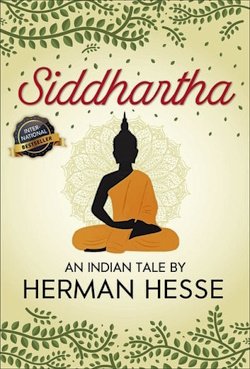He also put an end to this, this also died in him. He rose, bid his farewell to the mango-tree, his farewell to the pleasure-garden. Since he had been without food this day, he felt strong hunger, and thought of his house in the city, of his chamber and bed, of the table with the meals on it. He smiled tiredly, shook himself, and bid his farewell to these things.
In the same hour of the night, Siddhartha left his garden, left the city, and never came back. For a long time, Kamaswami had people look for him, thinking that he had fallen into the hands of robbers. Kamala had no one look for him. When she was told that Siddhartha had disappeared, she was not astonished. Did she not always expect it? Was he not a Samana, a man who was at home nowhere, a pilgrim? And most of all, she had felt this the last 72
Siddhartha: An Open-Source Text

Chapter 7. Sansara
time they had been together, and she was happy, in spite of all the pain of the loss, that she had pulled him so affectionately to her heart for this last time, that she had felt one more time to be so completely possessed and penetrated by him.
When she received the first news of Siddhartha’s disappearance, she went to the window, where she held a rare singing bird captive in a golden cage. She opened the door of the cage, took the bird out and let it fly. For a long time, she gazed after it, the flying bird. From this day on, she received no more visitors and kept her house locked. But after some time, she became aware that she was pregnant from the last time she was together with Siddhartha.
Hyderabad Colonnade, Library of Congress
Topics Worth Investigating
1. Complete and explain the analogy between the potter’s wheel and Sansara.
Tarthang Tulku describes the mental aspect of Sansara as follows: When we have not trained our awareness, we cannot separate ourselves from these endlessly repeating patterns of thought. Without being aware of our awareness, we have no access to a reality beyond the contents of what we are thinking. We cannot recognize or communicate anything other than what the shifting stream of thought allows. Unable to act on a deeper inner Siddhartha: An Open-Source Text
73
Chapter 7. Sansara
knowledge, we become isolated and weak, and the self defeating quality of our isolation stimulates still more isolation.
This unending circular karmic pattern, burdensome and hopeless, is what the Buddhist tradition calls samsara.1
Characterize in some detail the objective aspects of Sansara in contemporary life.
2. Explain the despair inherent in the “game-playing” attitude toward life.
Why isn’t the game of Sansara a game worth playing?
3. Hesse writes, “Never before, had it become so strangely clear to Siddhartha, how closely lust was akin to death.” Susan Sontag notes a similar point:
Tamed as it may be, sexuality remains one of the demonic forces in human consciousness—pushing us at intervals close to taboo and dangerous desires, which range from the impulse to commit sudden arbitrary violence upon another person to the voluptuous yearning for the extinction of one’s consciousness, for death itself.2
What do psychoanalysts write about the relation between passion and death?
1.
Tarthang Tulku. Mastering Successful Work. Berkeley, CA: Dharma Press, 1994. 42-43.
2.
Susan Sontag. Styles of Radical Will. New York: Farrar Straus, 1969.
74
Siddhartha: An Open-Source Text

Chapter 8
By the River
Assault of Mara, ©Kathleen Cohen
From the reading. . .
“Passionately he wished to know nothing about himself anymore, to have rest, to be dead.”
Ideas of Interest from “By the River”
1. Siddhartha concludes the game of Sansara is not a game worth losing his life over, and so he leaves the life of sensation. Why, then, does he fall even deeper in despair as he assertively abandons the ways of his old life?
2. Siddhartha defensively replies to Govinda’s inquiries, “I am on a pilgrimage.” When Govinda expresses surprise, Siddhartha rationalizes his 75
Chapter 8. By the River
assertion. Why pose such a pretense before his old friend?
3. Later in life, Siddhartha refers to this meeting with Govinda described in this chapter and claims that he learned something significant from Govinda. Can you discover any clue as to what Siddhartha learns?
4. In what ways did Buddha’s warning, in the third chapter, to “be aware of too much knowledge” foreshadow Siddhartha’s present crisis?

























